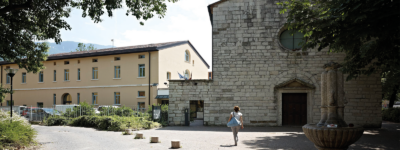When childbirth hurts beyond the physical: bioethical and penal keys to obstetrical violence

FBK Aula Piccola
Fondazione Bruno Kessler - Polo delle Scienze Umane e sociali
Aula Piccola
FBK Aula Piccola
Fondazione Bruno Kessler - Polo delle Scienze Umane e sociali
Aula Piccola
Midwifery violence is a phenomenon at the centre of media and academic debate today, defined by some as “a social problem that affects and violates women’s right to freely decide on the sexual and reproductive function of their bodies, preventing their health from being fully guaranteed”. This is linked to the paradigm shift resulting from the increase in women’s autonomy in making decisions about their own health as patients, as opposed to the traditional paternalist model, which has now been superseded at the normative level by instruments such as the Oviedo Convention and the Patient Autonomy Act.
In the current context, some of the practices commonly reported as obstetrical violence include the pathologisation of bodies, the excessive use of caesarean sections without medical justification, invasive procedures without the woman’s informed consent, the exogenous administration of synthetic oxytocin, the prohibition of being accompanied by a trusted person or using the “skin-to-skin” method, and of course, the absence of fully informed consent that takes into account the woman’s personal circumstances or wishes. These elements highlight a possible disconnect between care practices and patients’ needs and fuel the debate on how women’s autonomy in childbirth can be respected, even when they lack medical knowledge or there is a potential risk to the health of the foetus.
Internationally, countries such as Venezuela or some states in Mexico have already legislated against midwifery violence, even in the penal sphere. In Spain, there are some sentences that mention this concept and the Committee for the Elimination of Discrimination against Women has established that obstetrical violence has already occurred: the presentation will propose a holistic assessment on the appropriateness of regulating obstetrical violence as a specific crime.
Although it is crucial to ensure the safety of the mother and the foetus, it is equally crucial to respect the woman’s right to decide what risks she is willing to take, so that she can evaluate her care options together with health professionals and make fully informed and consensual decisions about her birthing process. Some authors also link obstetric violence to gender-based violence. An in-depth analysis of this issue is essential.
ADRIAN ROMERO BERENGUEL | University of Zaragoza, Spain
The event will be held in Spanish and Italian.
The presentation will take place in presence in the Aula Piccola FBK while places are available and online.
Registration is mandatory by 17 July 2025 at 12 noon.
Speakers
-
Adrian Romero Berenguel - SpeakerUniversity of Zaragoza, SpainAdrián Romero Berenguel, PhD student at the University of Zaragoza, is a nurse and lawyer and is spending a period as Visiting scholar at the Biolaw Lab of the University of Trento.
Registration
Registration to this event is mandatory.
Registration closed on 18/07/2025.
Contacts
Organizers
 The initiative was also realized thanks to the contribution of "Direzione generale Educazione, ricerca e istituti culturali" of the Ministry of Culture.
The initiative was also realized thanks to the contribution of "Direzione generale Educazione, ricerca e istituti culturali" of the Ministry of Culture.